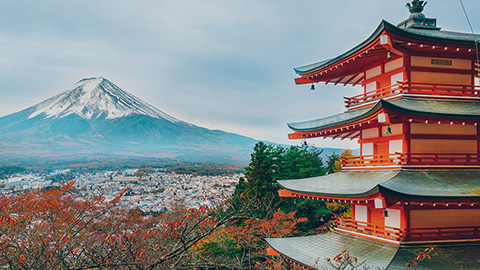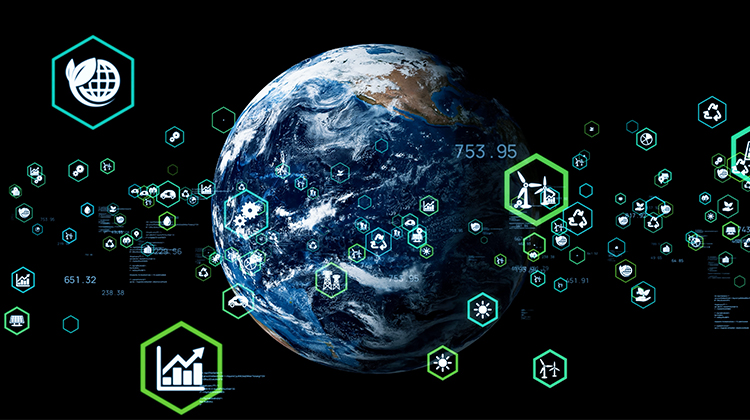April 2024
Japanese Market Appeal Through Sustainable Environmental Technology
Koji Makihara
President and CEO
Air Liquide Japan G.K.
March 2025

Air Liquide Japan, whose parent company was founded in France in 1902, delivers gases, technologies and services for a wide range of industries including healthcare, providing essential molecules for life, matter and energy such as oxygen, nitrogen, and hydrogen.
In recent years, the company has intensified its focus on R&D, driving innovation in environmental protection and sustainability. With a visible shift toward the promotion of low-carbon solutions, today hydrogen has come into particular focus. In this way, Air Liquide continues to adjust its operations flexibly to the demands of the moment and for the future.

Air Liquide Japan built Japan's first 24/7 hydrogen station in Motomiya City, Fukushima Prefecture
With a history in Japan dating back to 1907, Air Liquide has been a trusted partner in the market for nearly 120 years. We spoke with President and CEO Koji Makihara about Japan's business landscape and its potential for international investors.
Air Liquide: 120 Years of Experience in the Japanese Market
One of the company's greatest strengths is its deep-rooted history in Japan. Since entering the market in 1907, Air Liquide has maintained a strong presence, serving the industrial and medical gas sectors. "We were one of the first to enter Japan's industrial gas market and have grown alongside the country as its oldest industrial gas company," Makihara explains.
He continues to detail that in the company's early days, they took risks in the form of forward-looking investments, while identifying which industries would grow alongside Japan, which were surging at the time. The prime examples included the steel industry, driven by the booming shipbuilding sector, and petrochemical complexes.
Driven by a firm belief in Japan's potential, the company proactively established large-scale production facilities to anticipate future demand. One pivotal area of transformation was the semiconductor industry, where Air Liquide Japan played a key role in the development of the business, which has since grown into a major sector for the entire Group.
"Through a joint venture with Denka Company Limited, formed in the 1980s, we have been producing monosilane gas—essential for manufacturing semiconductors, LCD TFTs, and solar cells, and subsequently expanded its use into overseas markets," says Makihara.
The Japanese Market to Remain as Prime Investment Target
According to Makihara, Japan offers several key advantages for companies looking to expand their operations, with economic stability being one of the most significant. "Despite currency fluctuations, Japan still maintains a stable economic base, with the third to fourth largest GDP in the world, comparable to that of Germany. The size of this domestic market is a pivotal factor for companies considering global expansion," he explains.
Makihara also adds, "Japan possesses high-level technological expertise. In particular, it's home to many companies with advanced infrastructure, technological capabilities, and manpower in the field of semiconductor devices, for which demand is soaring across industries worldwide." This is exemplified by Air Liquide's recent investment in a new plant for oxygen and nitrogen, as well as rare gases used in semiconductor manufacturing in Kagawa Prefecture, located in western Japan. The strategic partnership with Mitsubishi Materials Corporation is a prime example of Japan's market readiness combined with superior infrastructure, technology, and talent.
The transition to renewable energy in Japan requires strong collaboration across industries. Makihara points out that Japan's concentration of high-tech companies makes it easier to build integrated supply chains, particularly when forming consortia for sustainability initiatives.
He also praises the government and major corporations for their active efforts to drive industry-wide sustainability and carbon neutrality. Expressing optimism about Japan's future, he sees the country as a key player in advancing sustainable technologies on a global scale.
Japan's High-Quality Workforce Facilitating Sustainable Business Growth
Makihara brings the discussion full circle by touching on Japan's highly reliable business culture. "In Japan, the corporate culture places great emphasis on keeping promises. Almost all companies can be relied on as a partner in terms of delivery and price. This is a major advantage for international companies doing business here," he claims.
He also notes that Japan's currently weak yen has made it easier for global enterprises to enter the market. Other advantages include Japan's high levels of security and safety, as well as its highly educated and skilled workforce.

Highly skilled workers at an Air Liquide R&D Center
Makihara highlights the qualities of the engineering talent that Air Liquide is actively recruiting, saying, "Japanese engineers understand customer needs on a very deep level and strive to meet them. For example, they respond diligently to requests for faster delivery or lower costs and are extremely honest and punctual in their work." Makihara believes global investors will recognize these qualities.
In closing, Makihara offers a key insight: "When investing in Japan, it is essential to focus on long-term growth in collaboration with local partners. With this mindset, companies can build strong, sustainable relationships with minimal risk."
Learn More
Contact Us
Investing in and collaborating with Japan
We will do our very best to support your business expansion into and within Japan as well as business collaboration with Japanese companies. Please feel free to contact us via the form below for any inquiries.
Inquiry FormJETRO Worldwide
Our network covers over 50 countries worldwide. You can contact us at one of our local offices near you for consultation.
Worldwide Offices

































